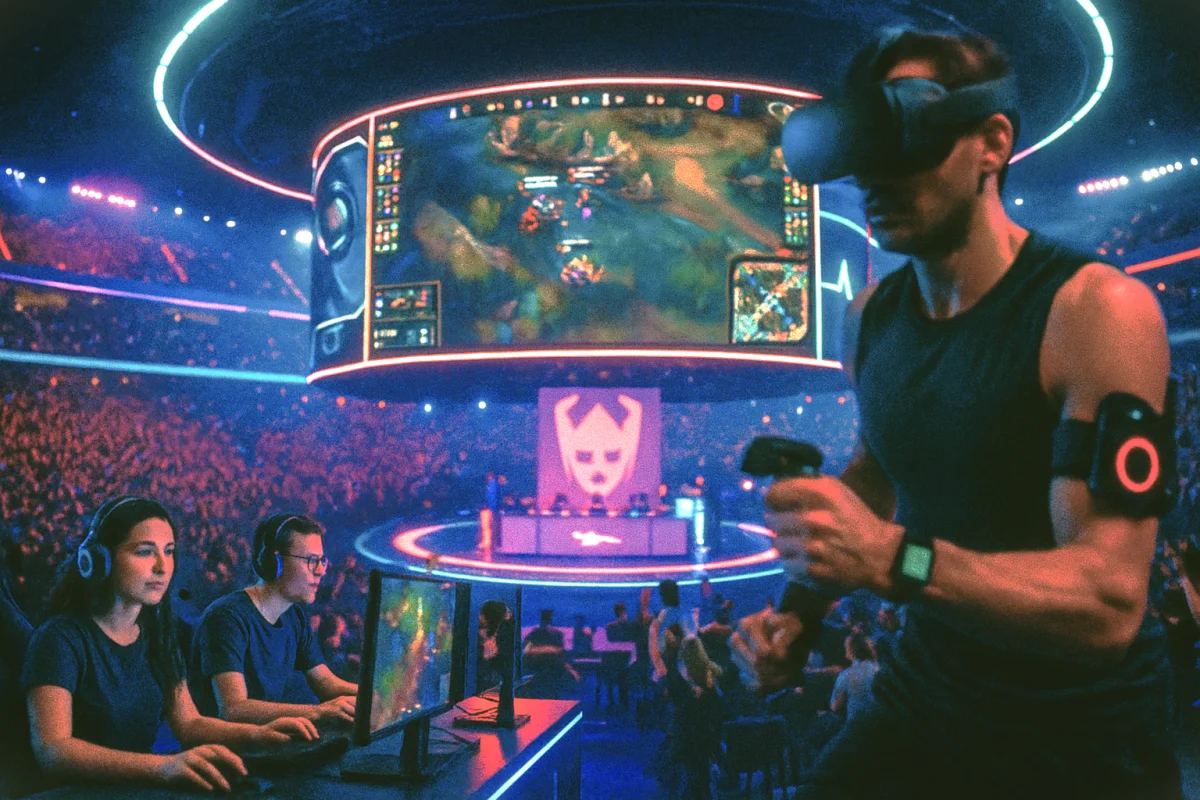The Future of Sports: eSports, Smart Devices, and Virtual Training
In 2025, the sports industry is entering a new phase, where technology is no longer just a supportive tool—it becomes an inseparable part of the game. eSports, smart devices, and virtual training are shaping an ecosystem that makes sports more innovative, interactive, and accessible to everyone.

eSports: The New Sports Arena
eSports has transformed into a billion-dollar industry over the last decade. Games like League of Legends, Dota 2, and Counter-Strike already host tournaments of Olympic proportions. Millions of viewers watch matches via platforms like Twitch and YouTube Gaming. eSports is not just entertainment—it has become a viable career choice for young people, while sponsors and brands are investing heavily in it.
Smart Devices: Data as the New Coach
For modern athletes, smartwatches, sensors, and fitness trackers are part of their daily training. They measure heart rate, breathing, movement speed, and calories burned. This data gives coaches and athletes unique opportunities to monitor progress in real time and adjust training individually. Moreover, analytics reduce the risk of injuries and enhance performance.
Virtual Training: Beyond Reality
VR and AR technologies allow athletes to train in environments that are otherwise difficult to access. A football player can practice in a virtual stadium, while a fighter can spar in a simulator that closely mimics a real opponent. Virtual training is especially popular in team sports, where complex strategies can be developed without physical exhaustion.
Advantages
- Global Accessibility — eSports and online training allow participation from anywhere in the world.
- Data-Driven Development — smart devices provide a precise view of an athlete’s progress.
- Innovative Experience — virtual reality makes sports more exciting and diverse.
- Economic Benefits — eSports already generates new jobs and income sources.
Challenges
Despite the benefits, there are still challenges. eSports raises health concerns—long gaming sessions can lead to both physical and mental fatigue. Smart devices bring up the issue of data privacy. Meanwhile, virtual training is still expensive and not accessible to everyone.
Conclusion
The future of sports is no longer confined to physical arenas—it is moving into digital and virtual spaces. eSports, smart devices, and virtual training are creating a new reality where sports are more innovative, scalable, and accessible. 👉 Do you think virtual and technology-driven sports could one day stand alongside traditional sports as equals?
✍ Article Author
- Registered: 26 July 2025, 15:34




 Silent Cat 🐾
Silent Cat 🐾